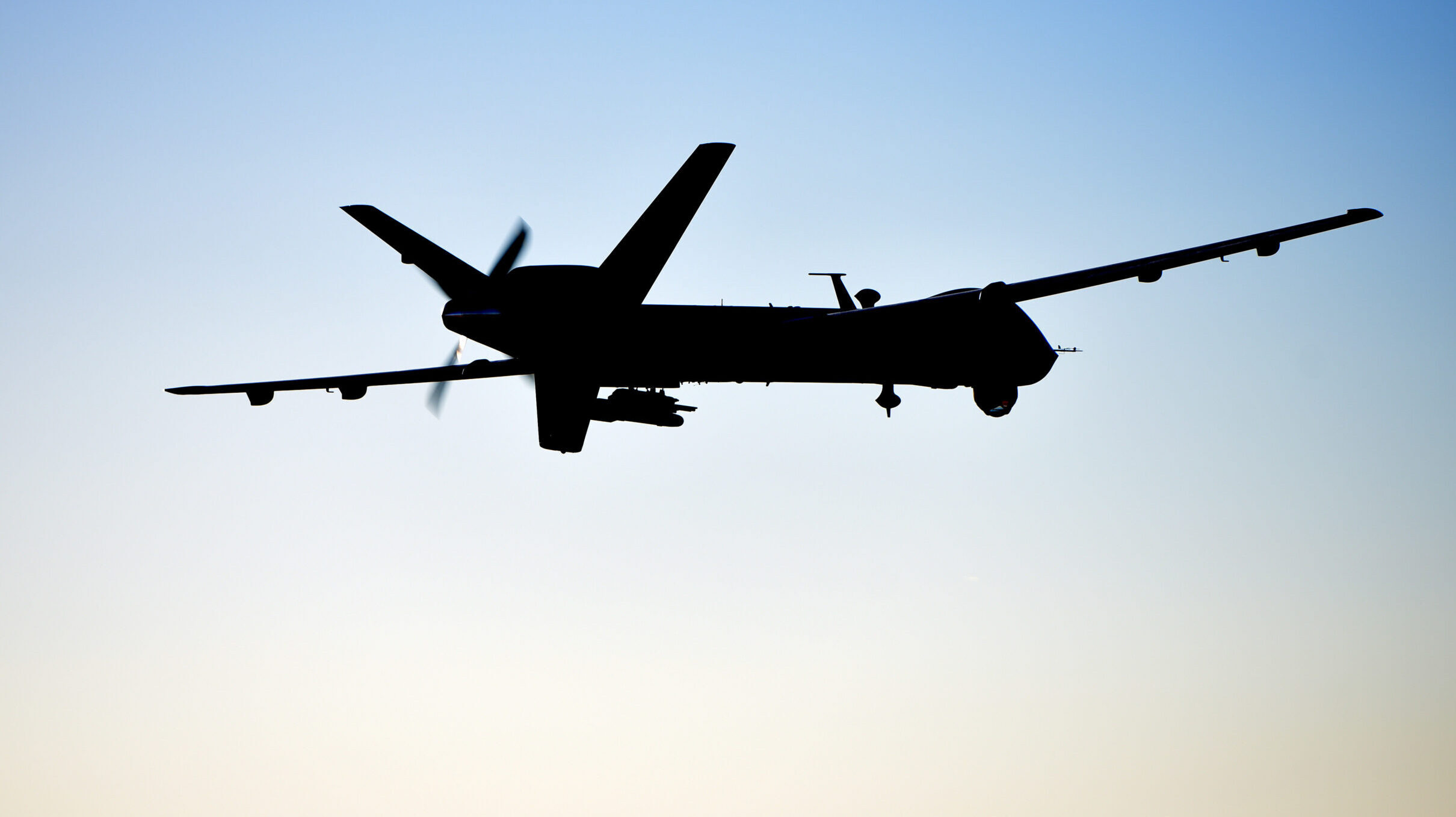MICHAEL MARROW

An MQ-9 Reaper flies a training mission over the Nevada Test and Training Range, July 15, 2019. MQ-9 aircrew provide dominant, persistent attack and reconnaissance for comabtant commanders and coalition partners across the globe. (U.S. Air Force photo by Airman 1st Class William Rio Rosado)
WASHINGTON — Alongside yet another intercept of a US drone flight today, the Russian military also conducted a reconnaissance mission over the American garrison at al-Tanf in Syria, moves that a senior defense official said represent a “triumvirate” between the Russian, Syrian and Iranian governments to push the US military out of Syria.
“I see evidence of operational-level planning between mid-level [Iranian] Quds Force leadership that’s operating in Syria, Russian forces that are operating in Syria — kind of the same basic level, mid-level to upper echelon. And then with the Syrian regime, of course, we know they’re very tightly tied with the Russians,” the official told reporters on background at the Pentagon today.
“So that kind of leads to a triumvirate,” they continued. “The way I would characterize it is collaborative planning, collaborative understanding, intelligence sharing. Frankly the same sorts of things that we would do with our partners in the face of something we were trying to accomplish, we see them doing that on their side as they try to think about how they sync the different things that different arms of them are doing in order to put that pressure on us.”
Russian activity against the United States in Syria — where American troops are still fighting the remnants of the Islamic State (ISIS) — has ramped up since March, the official observed, most recently culminating in three separate incidents of Russian fighter jets harassing US drone flights last week.
“My assessment, and we have some evidence to support this, is that as Russia and Iran have pulled themselves closer together, that there is interest on both sides to push us out of Syria, to put a pressure campaign on us to have us leave,” the official said, pointing to the drone intercepts as a key example.
Another run-in with a US MQ-9 Reaper drone occurred yet again this morning, the official confirmed, coupled with a Russian intelligence, surveillance and reconnaissance (ISR) flight over the American al-Tanf garrison.
The official characterized today’s drone intercept as “safe” but “unprofessional” on the part of the Russians and said the ISR mission concerned a “much broader search pattern” over the entire 55 kilometer zone surrounding the outpost.
The deconfliction line to ensure coordination between the US and Russian militaries is still actively used, the official said, with neither side refusing to answer each others’ calls despite increased tensions since Russia’s invasion of Ukraine in February 2022.
“There’s a lot of back and forth,” they said. “Sometimes it gets somewhat heated, but the line has stayed open and continues to provide a forum for that kind of dialogue.”
For example, the official said, the US did not have assets available to immediately respond to the reconnaissance flyover, so officials verbally protested over the deconfliction line. Their complaints, the official said, mostly fell on deaf Russian ears.
The ramp up in activity by the Russians in recent weeks “was maybe the next step in a gradual campaign of escalation on their side,” the official stated, adding that “I don’t see any trigger — there was nothing different about our behavior at all.”
“I think AUKUS is a fantastic foundation, obviously focused in a different domain to what we are focused on today, but the nations are considering opportunities for broadening the partnership,” said Richard Berthon, the UK Ministry of Defence’s Director of Future Combat Air.
Beyond larger geopolitical motives, the official pointed to the war in Ukraine as a potential factor that explains the Russians’ recent activity in the Middle East.
“The generals who are in charge in Syria are often generals who were sent from Ukraine after they failed,” he said. “So they come back, they’ve got something to prove, maybe.
“We’re not seeking to drive escalation. We’re just trying to continue to do that enduring defeat of ISIS. I think they may have different views with a variety of motivations that could be directly or indirectly linked to Ukraine,” they said.
No comments:
Post a Comment